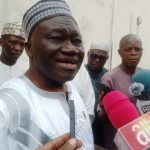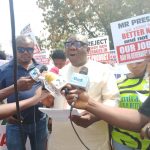Nigeria’s Economic Balancing Act: Debt Management, Fiscal Discipline, and the Dual Lens of Macro and Microeconomic Realities
By Dr. Aiyeku Olufemi Samuel
Introduction
In a season marked by economic turbulence and fiscal uncertainty, Nigeria’s successful repayment of its $3.4 billion (₦2.59 trillion) debt to the International Monetary Fund (IMF) offers a glimmer of macroeconomic discipline and optimism. While this development demonstrates a measure of prudence in debt obligations, it also exposes deeper structural issues, looming external borrowing plans, and the ever-present disconnect between macroeconomic metrics and microeconomic realities. This article provides a robust analysis and critique of Nigeria’s economic strategy, highlighting both achievements and persistent gaps, with expert recommendations for sustainable growth.
Macroeconomic Indicators: Debt Servicing, Fiscal Management, and External Borrowing
Clearing the IMF debt between July 2023 and May 2025 is a major fiscal milestone. The gradual reduction—from $1.61 billion to zero—suggests improved revenue mobilization and foreign exchange stability. However, this repayment must be weighed against Nigeria’s ballooning domestic and external debt stock, estimated at over $110 billion.
Despite settling its IMF obligations, the Federal Government has proposed a controversial $21 billion borrowing framework (2025–2026), raising valid concerns about debt sustainability. While the Multi-Year Economic Framework (MTEF) clarifies intentions to channel funds into infrastructure, the sheer volume of proposed borrowing—especially in the face of limited internally generated revenue (IGR) and oil revenue volatility—demands caution.
As economist Thomas Sowell once said, “There are no solutions, only trade-offs.” Nigeria’s repayment of IMF debt must be balanced against the trade-off of increased domestic hardship, inflationary pressures, and unemployment due to austerity measures or monetary tightening.
Microeconomic Implications: The Realities on the Ground
At the microeconomic level, the lived experience of Nigerians continues to reflect widespread economic distress. Small businesses are grappling with high interest rates, currency instability, and inconsistent power supply. Food inflation remains in double digits, severely impacting low-income households and widening inequality. While clearing the IMF loan may signal confidence to foreign investors, it does little to ease the cost of living crisis or increase disposable income for the average Nigerian.
One must recall what legendary accountant Robert H. Smith once said: *“Financial management is not about avoiding debt, but mastering the art of using it wisely.”* For Nigeria, the wisdom must now shift toward ensuring debt translates into economic productivity, not just accounting victories.
The Role of Governance: Structure, Transparency, and Accountability
The success of Nigeria’s economic recovery depends less on the volume of borrowed funds and more on governance efficiency. Good governance is defined not just by policy intent but by implementation. The proposed \$2 billion domestic borrowing for infrastructure is promising, but it must be accompanied by strict oversight mechanisms, public-private partnerships, and fiscal responsibility laws that prevent misuse.
Moreover, the National Assembly’s role in granting bulk approvals for states’ external loans must not become a rubber-stamp process. Proper scrutiny, performance tracking, and periodic audits are essential to ensure value for money.
In line with Peter Drucker’s words, *“What gets measured gets managed.”* Nigeria must prioritize measurable outcomes for every loan obtained. It is not the debt that drowns a country, but the lack of direction, accountability, and economic multiplier effects.
Critical Questions and Needed Reforms
Before borrowing, key questions must be asked:
• What is the ROI (Return on Investment) for each proposed project?
• How will these loans improve employment, health, education, or security?
• Are borrowing alternatives like public-private partnerships, diaspora bonds, or targeted taxes being explored?
Additionally, strengthening state fiscal autonomy and encouraging states to boost internal revenue through innovation and industrialization will reduce dependence on the federal purse. Relying on the FG as guarantor for every state’s international funding needs is unsustainable and bureaucratically inefficient.
Solutions and Recommendations
• Establish a National Debt Review Committee: This independent body should evaluate every proposed borrowing for necessity, feasibility, and impact.
• Enhance Revenue Mobilization: Modernize tax collection, broaden the tax base, and curb tax evasion using technology-driven systems.
• Promote Non-Oil Exports: Agriculture, solid minerals, and digital services can significantly reduce FX dependency.
• Revamp Infrastructure Financing: Adopt Infrastructure Investment Trusts (IITs) and Public-Private Partnerships (PPPs) to de-risk infrastructure funding.
• Institutionalize Impact Monitoring: Every borrowed kobo must be traceable to an economic outcome—whether it’s a road built, a school opened, or a hospital equipped.
• Strengthen State Accountability: States should produce annual debt reports, audited by independent firms, and submitted to the National Assembly and citizens.
Conclusion
Nigeria’s ability to repay the IMF loan is commendable, but it is not a full measure of economic success. The country remains at a crossroads—between prudent borrowing and fiscal recklessness, between macro-level optics and micro-level sufferings, and between visionary governance and recycled policy failures.
As Dr. Aiyeku Olufemi Samuel asserts: “Economic development is not about numbers in ledgers but lives lifted from poverty, jobs created, and futures secured.”
In the coming months, Nigeria must match bold borrowing plans with bold reforms. The time to govern with clarity, accountability, and people-centered economics is now.
Dr. Aiyeku Olufemi Samuel
Co-Founder & Lead Consultant Global Human Capital & Energy Management Limited
Governance Analyst|
Development Economist|
Policy Consultant| Strategic Development Advocate| Climate Action Enthusiast | Sustainability & Impact Investing Specialist| PPP & CRM Specialist /Sales Innovation & Transformational Results-Driven Business Analyst












